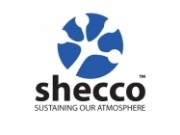We are happy to announce the first round of case studies from Mayekawa, Mitsubishi Heavy Industries Air-Conditioners Australia (MHIAA) and Scantec to be presented at ATMOsphere Australia 2018.
The ATMOsphere Review Panel is pleased to announce the first round of case study selections for ATMOsphere Australia 2018 taking place on 7 May in Sydney.
Mayekawa, Mitsubishi Heavy Industries Air-Conditioners Australia (MHIAA) and Scantec will discuss their innovative natural refrigerant-based technologies at the conference.
The presentations are:
Mayekawa: Salt drying using heat pump technology by Aliakbar Akbarzadeh and Peter O'Neill
Heat pump technology presents itself in many different forms and applications and is traditionally associated with heating/cooling comfort. Mayekawa's presentation will cover the use of R744 heat pump technology in a salt crystallization process, where the heat pump is used to heat air up to 70 C to help crystallize the moist salt flakes where low grade heat available in a salt gradient pond is used as the heat source. The airheating system is capable of operating 24 hours a day .
Comparing this form of heating to the conventional method of using electric heaters shows a vast improvement in COP and offers a more sustainable, energy efficient form of heating.
MHIAA: Why R744 is the best in both Alpine and tropical climates for heating hotwater by Trent Miller
Matterhorn Lodge Perisher Valley has a curently running partially running on a Q-ton and a boiler and will change over to an a R744 system by the 2018 Australian ski season.
The Shangri-La resort located in tropical Cairns currently has a bank of 27 heat pumps with R134 refrigerant and a bank of five LPG instantaneous gas water heaters. The new design featuring Q-ton CO2 Technology is five MHIAA Q-ton and ten thousand litres of storage.
The presentation will cover why these end users chose these systems and how they were installed as well as results and future implications.
Scantec: First low-charge NH3 plant in China with insulated coolers and automatic ambient air defrost by Stefan Jensen
The presentation will detail operating experiences with the first dual compression stage, central style, low charge NH3 plant in China and possibly the world. The system is provided with insulated, roof mounted, low temperature air handling units fitted with built-in automatic ambient air defrost. By minimizing the NH3 inventory, this new installation meets the most stringent safety requirements. The freezer evaporator operating NH3 inventory is approximately 2x5 kg - the nominal capacity of each evaporator is 160 kW. In the unlikely event of an NH3 leak from the evaporator(s), the automatic defrost system will ensure only minimal quantities of NH3 will enter the refrigerated warehouse - the bulk of the leaked refrigerant will be vented to ambient conditions. For further charge minimization, all medium temperature services are connected to a glycol loop.
